Greenock Morton F.C.
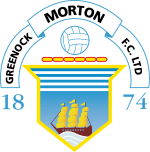 | |||
| Full name | Greenock Morton Football Club | ||
|---|---|---|---|
| Nickname(s) | The Ton[1] | ||
| Founded | 1874 (as Morton F.C.)[2] | ||
| Ground |
Cappielow Park Sinclair Street Greenock | ||
| Capacity | 11,589[3] (5,741 seated) | ||
| Owner | Golden Casket Group | ||
| Chairman | Douglas Rae | ||
| Manager | Jim Duffy | ||
| League | Scottish Championship | ||
| 2015–16 | Scottish Championship, 5th | ||
| Website | Club home page | ||
|
| |||
Greenock Morton Football Club are a Scottish professional football club, who will play in the Scottish Championship in 2016–17. The club was founded as Morton Football Club in 1874, making it one of the oldest senior Scottish clubs. Morton were renamed as Greenock Morton in 1994 to celebrate the links with its home town of Greenock.
Morton won the Scottish Cup in 1922, and achieved their highest league finish in 1916–17, finishing as runners-up to champions Celtic. Morton holds the record for the most promotions and relegations into the top flight (10 promotions and 10 relegations), however they have not competed in the top flight of the Scottish football league system since 1988. In 2014–15, Morton won their tenth league title as they won the Scottish League One on the final day.
History
19th century
Morton Football Club was established in 1874.[2] In the early 1870s the popularity of football was growing, with many clubs being established around Scotland. At the club's inaugural meeting, the first recorded words were "that this club be called Morton Football Club".[2] The true reason for the name 'Morton' remains unclear, though the general consensus is that the club was named after the 'Morton Terrace', a row of houses next to the original playing field, where some of the players lived.[2] The name would be altered in 1994 to read 'Greenock Morton Football Club', to celebrate the club's links with its hometown, though they are still almost universally referred to as 'Morton'.
Morton were one of the founding members of the old Second Division, formed in 1893. They finished 8th in their first season. Morton first gained promotion to the old First Division in 1899–1900, and finished 4th in their first season there.
20th century
Morton's greatest success came when they defeated Rangers 1–0 in the 1922 Scottish Cup Final. Jimmy Gourlay scored the winning goal, direct from a free kick in the 11th minute. Straight after the match Morton boarded a train for Hartlepool to play the local side in a pre-arranged friendly match. The celebrations were delayed until the Wednesday when 10,000 locals turned out at Cappielow Park to celebrate.
Morton have made two other major cup final appearances. On Saturday 17 April 1948, Morton drew 1–1 with Rangers in the Scottish Cup Final.[4] Morton's goal was a free kick scored by Jimmy White. The match was replayed on Wednesday 21 April. This time Rangers won 1–0 after extra time. The goal was said to be highly controversial because it was claimed that Morton goalkeeper Jimmy Cowan was blinded by the flash of a camera.[5] These matches were significant because of the huge crowds they attracted. The first match was played in front of 132,629; the replay in front of 133,750, which was, at the time a British record attendance for a midweek match.[6]
Morton's third and final major cup final to date was in the League Cup and this was played on Saturday 26 October 1963 when Rangers (who Morton have faced in all three final appearances) won by 5 goals to nil[7](HT: 0–0) in front of 106,000 supporters.
During the Second World War 'guest' players were common at clubs throughout Great Britain. Morton were particularly fortunate in this respect in that two of English football's greatest ever players turned out at Cappielow. Sir Stanley Matthews[8] and Tommy Lawton[9] made several guest appearances for Morton. When Morton reached the 1948 Scottish Cup Final both players sent telegrams wishing good luck to their former club. Matthews simply said 'I am delighted to see Morton reach the final of the Scottish Cup'. Lawton's was more expressive, he said 'Memories of happy days during the war at Cappielow compel me to wish the Morton manager & the boys all the best of luck in their cup final at Hampden'.
To date Morton have played in a European Club Competition once. After finishing 6th in Scotland's top division in 1967–68 Morton qualified for the European Inter-Cities Fairs Cup (now the UEFA Europa League). They were drawn to play Chelsea but were eliminated at the first hurdle after a 5–0 defeat at Stamford Bridge and a 4–3 defeat at Cappielow.[10]
In 1992–93 Morton lost 3–2 to Hamilton Academical in the Scottish Challenge Cup Final[11] in front of 7,391 fans. The final was played at Love Street, the home of Morton's arch rivals St Mirren.
21st century
After experiencing financial problems the team was relegated from the First Division at the end of the 2000–01 season after a six-year stay and was put into administration. The club's financial problems continued and a second successive relegation followed the next season. In season 2002–03, Morton's first ever season in the Third Division, the club's financial situation was resolved by the takeover by chairman Douglas Rae. Rae appointed John McCormack as manager,[12] and the team won the Third Division championship at the first attempt, confirming their position with a 1–0 victory over Peterhead in front of a then Third Division record crowd of 8,497 people.
After a strong start to the 2003–04 season the team fell away after the turn of the year, and finished in 4th place, well outside the promotion places. This came after being 12 points ahead in the Championship race at the half way stage. This led to unfounded allegations that some players had placed large bets on nearest rivals Airdrie United to win the league, which they eventually did.[13]
Jim McInally was announced as McCormack's successor,[14] and in his first season as manager the club failed to gain promotion to the First Division by a single point, finishing behind Stranraer in 3rd place.
Morton failed to gain promotion to the First Division during the 2005–06 season. Finishing 2nd was not enough, as the SFL playoffs meant that only the championship-winning team would be promoted automatically. Gretna won the division, so Morton entered play-offs alongside Peterhead (3rd), Partick Thistle (4th), and Stranraer (9th in Division One.) Morton's first play-off match was against Peterhead, and the Greenock side were defeated 1–0 over two legs, the only goal a penalty in the second match at Balmoor.[15]
The following season, a week after a 9–1 defeat of Forfar Athletic at Cappielow Park,[16] Morton achieved promotion to the First Division,[17] and went on to become Second Division Champions.[18]
Jim McInally resigned on 11 February 2008[19] after a run of poor results allowed Morton to slip into 9th place in the First Division and was replaced by Davie Irons, with Derek Collins joining him as Assistant Manager.[20] Morton battled relegation for most of the season and survived on the final day with a 3–0 victory against Partick Thistle, to avoid the relegation playoff by a single goal. Irons was sacked in September 2009 and replaced October by James Grady, until the end of the season.[21] Grady was removed from the club in May 2010,[22] and replaced by Allan Moore.[23] Allan Moore was sacked after a 5–1 defeat at home to Livingston on 23 November 2013. His replacement Kenny Shiels was given a contract until the end of season 2014–2015, but failed to reverse the slide towards relegation from the Scottish Championship, which became a reality on 12 April 2014 after a 2–0 away defeat by Alloa Athletic. Shiels resigned after a 10–2 defeat by Hamilton Accies.[24]
After the resignation of Shiels, Jim Duffy was appointed as manager. He won the Scottish League One to return the club the Championship at the first time of asking.[25] This league victory earned Morton's tenth league title, making them the fourth most crowned league champions in Scotland behind Rangers (54), Celtic (46) and Clyde (12).
Colours
The team's home strip is traditionally a blue and white hooped shirt with white shorts and white socks, though season 2006–07 saw the team playing a blue and white striped shirt with white shorts and blue socks. Short-lived yet distinctive designs have been used over the years, including sky blue and white stripes in the style of the Argentine national team and even a blue Morton tartan. The away strip tends to vary much more; for the 2003–04 season it was an all yellow outfit, changing in 2004–05 to all white, which in turn became the 3rd team strip in 2005–06, with the special re-issue of the blue Morton tartan strip. The sponsor's logo on the strip is that of Millions, a brand owned by the Club Chairman's confectionery concern, Golden Casket (Greenock) Ltd.[26]
Stadium
Their stadium is Cappielow Park in Greenock, a ground they have occupied since 1879. Cappielow's etymology is allegedly of Scandinavian origin, although details of this are sketchy. The current capacity is 11,589,[3] with 5,741 of these being seated. In December 2008, Morton purchased the Reid Kerr sponsored East stand from local rivals St Mirren for £50,000, to improve the away end at Cappielow.[27]
The area currently behind the western goal (upon which the new stand will be built) is known as the Wee Dublin End, which contains non-backed bench seating, converted from the old terracing that once stood there. The main stand contains plastic bucket seating to replace the old wooden benches that were a fixture of the ground until the late 1990s. The "Cowshed" lies to the north of the pitch; formerly a fully terraced arena for both home and away supporters (complete with segregation fence down the middle), it is now for home supporters only, with much of the frontal terracing removed, and plastic bucket seats occupying its place. The segregation fence no longer exists, and the whole area is used by home supporters. Behind the eastern goal is the "Sinclair Street" end, with uncovered terracing.
Supporters & Rivalries
Greenock Morton have several supporters' clubs, based in Greenock and the surrounding towns. The main clubs are The Andy Ritchie Travel Club, The Prince of Wales Travel Club, The Greenock Morton Supporters Club, The Albert Hotel Morton Supporters Club and The Spinnaker Hotel Supporters Club.[28][29]
The club has a fierce rivalry with fellow neighbours St Mirren F.C.,[30] a rivalry which sees a large amount of animosity between the two set of fans.[31]
League participation
- First Level: 1900–1927, 1929–1933, 1937–1938, 1946–1949, 1950–1952, 1964–1966, 1967–1975, 1978–1983, 1984–1985, 1987–1988
- Second Level: 1893–1900, 1927–1929, 1933–1937, 1938–39, 1949–1950, 1952–1964, 1966–1967, 1975–1978, 1983–1984, 1985–1987, 1988–1994, 1995–2001, 2007–2014, 2015–
- Third Level: 1994–1995, 2001–2002, 2003–2007, 2014–2015
- Fourth Level: 2002–2003
Honours
National honours
- Scottish Cup
- Scottish League Cup
- Runners-up: (1) 1963–64
- Scottish Challenge Cup
- Runners-up: (1) 1992
- Scottish Premier Division
- Runners-up: (1) 1916–17²
- Scottish First Division
- Scottish Second Division
- Scottish Third Division
- Champions: (1) 2002–03
Minor honours
- Renfrewshire Cup
- Winners: 52 times
- Runners-up: 42 times
- Great War Shield[32]
- Winners: 1914–15
- Runners-up: 1917–18
- Southern League Cup
- Runners-up: 1941–42
- SFL Reserve League South
- Runners-up: 2012–13[33]
- SPFL Development League West
- Champions: 2015–16[34]
- Club Academy Scotland U16/17 South/West League
- Champions: 2014–15[35]
- Runners-up: 2015–16
¹ Known as Division II at the time
² Known as Division I at the time
³ Known as SPFL League One at the time
Records
- Best league position – 2nd in First Division (Old) (1916–1917)
- Best Scottish Cup performance – winners (1921–1922)
- Best League Cup performance – runners-up (1963–1964)
- Best Challenge Cup performance – runners-up (1992–1993)
- Victory – 21–0 v Howwood (1886–87 Renfrewshire Cup)
- Defeat – 1–10 v Port Glasgow Athletic (5 May 1894), St Bernard's (14 October 1933)
- Home attendance – 23,500 v Celtic (1922)
- Goals in one season – Allan McGraw (58 in 1963–1964)
- Most league appearances – Derek Collins (534)
- Most league goals – Allan McGraw (117)
- Record signing – Janne Lindberg – £250k plus Marko Rajamäki from MyPa-47
- Record sale – Derek Lilley – £500k to Leeds United[36]
Players
- As of 12 November 2016
Note: Flags indicate national team as defined under FIFA eligibility rules. Players may hold more than one non-FIFA nationality.
|
|
Note: Flags indicate national team as defined under FIFA eligibility rules. Players may hold more than one non-FIFA nationality.
|
|
On loan
Note: Flags indicate national team as defined under FIFA eligibility rules. Players may hold more than one non-FIFA nationality.
|
|
Current squad statistics
League Appearances (current squad)
|
League goals (current squad)
|
Player records
All statistics are for league games, post-World War II.[37]
- As of 7 May 2013
Top goalscorers
| # | Name | Career | Apps | Goals |
|---|---|---|---|---|
| 1 | 1961–1966 | 136 | 117 | |
| 2 | 1976–1983 | 213 | 100 | |
| 3 | 1986–1995 | 310 | 98 | |
| 4 | 2003–2013 | 322 | 94 | |
| 5 | 1946–1958 | 257 | 86 | |
| 6 | 1956–1960 | 110 | 83 | |
| 1991–1997 2005–2007 |
232 | 83 | ||
| 8 | 1966–1973 | 186 | 76 | |
| 9 | 1951–1955 | 101 | 72 | |
| 10 | 1975–1991 | 328 | 67 |
Most appearances
| # | Name | Career | Apps |
|---|---|---|---|
| 1 | 1987–1999 2001–2005 |
534 | |
| 2 | 1985–1999 | 482 | |
| 3 | 1976–1988 | 437 | |
| 4 | 1970–1984 | 353 | |
| 5 | 1975–1991 | 328 | |
| 6 | 2003–2013 | 322 | |
| 7 | 1986–1995 | 310 | |
| 8 | 1969–1981 1985–1987 |
280 | |
| 9 | 1972–1977 1978–1983 |
271 | |
| 10 | 1946–1958 | 257 |
Top league goalscorers by season (post war)
In progress
- Scottish unless stated
| Season | Name | Goals | Division |
|---|---|---|---|
| 1946–47 | Ross Henderson | 10 | Premier Division |
| 1947–48 | Tommy Orr | 14 | Premier Division |
| 1948–49 | Neil Mochan | 13 | Premier Division |
| 1949–50 | Neil Mochan | 24 | First Division |
| 1950–51 | Neil Mochan | 20 | Premier Division |
| 1951–52 | Alec Linwood | 19 | Premier Division |
| 1952–53 | Bob Gibson Alec Linwood |
17 | First Division |
| 1953–54 | Alec Linwood John Hannigan |
22 | First Division |
| 1954–55 | Alec Linwood | 14 | First Division |
| 1955–56 | Bob Gibson | 33 | First Division |
| 1956–57 | Eddie Beaton | 18 | First Division |
| 1957–58 | Eddie Beaton | 25 | First Division |
| 1958–59 | Eddie Beaton | 33 | First Division |
| 1959–60 | Charlie Stewart | 11 | First Division |
| 1960–61 | Billy Craig | 11 | First Division |
| 1961–62 | Allan McGraw | 16 | First Division |
| 1962–63 | Allan McGraw | 29 | First Division |
| 1963–64 | Allan McGraw | 51 | First Division |
| 1964–65 | Allan McGraw | 12 | Premier Division |
| 1965–66 | Allan McGraw David Watson |
8 | Premier Division |
| 1966–67 | Joe Harper | 29 | First Division |
| 1967–68 | Joe Mason | 15 | Premier Division |
| 1968–69 | Joe Harper | 25 | Premier Division |
| 1969–70 | Billy Osborne | 11 | Premier Division |
| 1970–71 | Joe Mason | 9 | Premier Division |
| 1971–72 | Donald Gillies | 9 | Premier Division |
| 1972–73 | Donald Gillies | 14 | Premier Division |
| 1973–74 | Hugh McIlmoyle | 8 | Premier Division |
| 1974–75 | John Hazel | 6 | Premier Division |
| 1975–76 | John Goldthorpe Ian Harley Richard Sharp |
22 | First Division |
| 1976–77 | Andy Ritchie | 22 | First Division |
| 1977–78 | John Goldthorpe Andy Ritchie |
20 | First Division |
| 1978–79 | Andy Ritchie | 22 | Premier Division |
| 1979–80 | Andy Ritchie | 19 | Premier Division |
| 1980–81 | Andy Ritchie | 8 | Premier Division |
| 1981–82 | Andy Ritchie | 6 | Premier Division |
| 1982–83 | James Rooney | 7 | Premier Division |
| 1983–84 | John McNeil | 17 | First Division |
| 1984–85 | James Gillespie | 5 | Premier Division |
| 1985–86 | John McNeil | 14 | First Division |
| 1986–87 | Rowan Alexander | 23 | First Division |
| 1987–88 | Jimmy Boag | 8 | Premier Division |
| 1988–89 | Rowan Alexander | 11 | First Division |
| 1989–90 | Rowan Alexander | 11 | First Division |
| 1990–91 | Dave McCabe | 21 | First Division |
| 1991–92 | Alex Mathie | 18 | First Division |
| 1992–93 | Alex Mathie | 13 | First Division |
| 1993–94 | Rowan Alexander | 11 | First Division |
| 1994–95 | Derek Lilley | 16 | Second Division |
| 1995–96 | Derek Lilley | 14 | First Division |
| 1996–97 | Derek Lilley | 15 | First Division |
| 1997–98 | 10 | First Division | |
| 1998–99 | Kevin Thomas | 9 | First Division |
| 1999–00 | Harry Curran | 9 | First Division |
| 2000–01 | Ross Matheson | 9 | First Division |
| 2001–02 | Scott Bannerman | 8 | Second Division |
| 2002–03 | Alex Williams | 23 | Third Division |
| 2003–04 | Alex Williams |
15 | Second Division |
| 2004–05 | Chris Millar |
10 | Second Division |
| 2005–06 | Derek Lilley | 12 | Second Division |
| 2006–07 | 15 | Second Division | |
| 2007–08 | 9 | First Division | |
| 2008–09 | 9 | First Division | |
| 2009–10 | 10 | First Division | |
| 2010–11 | Allan Jenkins | 8 | First Division |
| 2011–12 | Peter MacDonald | 10 | First Division |
| 2012–13 | Peter MacDonald | 14 | First Division |
| 2013–14 | Dougie Imrie | 9 | Championship |
| 2014–15 | Declan McManus (on loan from Aberdeen) | 20 | League One |
| 2015–16 | Denny Johnstone (on loan from Birmingham City) | 14 | Championship |
| 2016–17 | Ross Forbes Gary Oliver Thomas O'Ware |
4 | Championship |
National Player Honours
- 2014–2015 – Declan McManus (SPFL League One Player of the Year)
- 2002–2003 – Alex Williams (SPFA Third Division Player of the Year)
- 1994–1995 – Derek McInnes (SPFA Second Division Player of the Year)
- 1986–1987 – Jim Holmes (SPFA First Division Player of the Year)
- 1984–1985 – Jim Duffy (SPFA Players' Player of the Year)
- 1978–1979 – Andy Ritchie (SFWA Footballer of the Year)
Recent internationals
The last player to earn a full international cap whilst playing for Morton – Fouad Bachirou for Comoros in 2014.[38]
The last signed Morton player to receive international honours for Scotland was Jai Quitongo in 2016, for the under-21 side.[39]
Notable players
To be included in this list players must have met one of the following criteria...
- Played over 100 league games for Morton
- Scored in a national Cup final
- Managed the club after playing for them
- Been from a nation outwith the British Isles
- Won full international honours
-
 Stephen Aitken
Stephen Aitken -
 Rowan Alexander
Rowan Alexander -
 George Anderson
George Anderson -
 John Anderson
John Anderson -
 Preben Arentoft
Preben Arentoft -
 Fouad Bachirou
Fouad Bachirou -
 Roy Baines
Roy Baines -
 Per Bartram
Per Bartram -
 Eddie Beaton
Eddie Beaton -
 Carl Bertelsen
Carl Bertelsen -
 John Boag
John Boag -
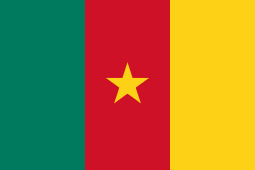 Andre Boe
Andre Boe -
 Emilio Bottiglieri
Emilio Bottiglieri -
 Karim Boukraa
Karim Boukraa -
 John Boyd
John Boyd -
 David Brcic
David Brcic -
 Charlie Brown
Charlie Brown -
 Nicolas Caraux
Nicolas Caraux -
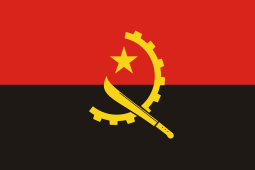 Artur Correia
Artur Correia -
 Dominic Cervi
Dominic Cervi -
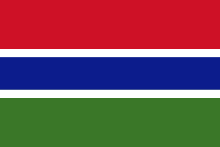 Kabba-Modou Cham
Kabba-Modou Cham -
 Gert Christensen
Gert Christensen -
 Lars Christensen
Lars Christensen -
 Ian Clinging
Ian Clinging -
 Derek Collins
Derek Collins -
 Jimmy Cowan
Jimmy Cowan -
 Craig Coyle
Craig Coyle -
 Martin Doak
Martin Doak -
 Jim Duffy
Jim Duffy -
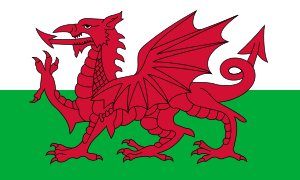 Robert Earnshaw
Robert Earnshaw -
 Paul Fenwick
Paul Fenwick -
 Kevin Finlayson
Kevin Finlayson -
 John Fowler
John Fowler -
 Luca Gasparotto
Luca Gasparotto -
 Derek Gaston
Derek Gaston -
 James Gillespie
James Gillespie -
 Stewart Greacen
Stewart Greacen -
 Bobby Gourlay
Bobby Gourlay -
 Jimmy Gourlay
Jimmy Gourlay -
 James Grady
James Grady -
 Billy Gray
Billy Gray -
 Michal Habai
Michal Habai -
 Ryan Harding
Ryan Harding -
 Joe Harper
Joe Harper -
 Paul Hartley
Paul Hartley -
 Warren Hawke
Warren Hawke -
 Davie Hayes
Davie Hayes -
 Atli Thor Hedinsson
Atli Thor Hedinsson -
 Willie Hinshelwood
Willie Hinshelwood -
 Jim Holmes
Jim Holmes -
 David Hopkin
David Hopkin -
 Bobby Houston
Bobby Houston -
 Jim Hunter
Jim Hunter -
 Roddy Hutchinson
Roddy Hutchinson -
 Bjarne Jensen
Bjarne Jensen -
 Kai Johansen
Kai Johansen -
 Dougie Johnstone
Dougie Johnstone -
 Joe Jordan
Joe Jordan -
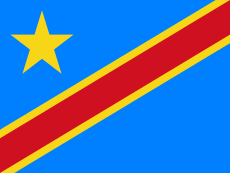 Joel Kasubandi
Joel Kasubandi -
 Jim Kiernan
Jim Kiernan -
 Carl Kristensen
Carl Kristensen -
 Tommy Lawton
Tommy Lawton -
 Gudgeir Leifsson
Gudgeir Leifsson -
 Derek Lilley
Derek Lilley -
 Janne Lindberg
Janne Lindberg -
 Alec Linwood
Alec Linwood -
 Adam Little
Adam Little -
 John Madsen
John Madsen -
 Alan Mahood
Alan Mahood -
 John Maisano
John Maisano -
 Marco Maisano
Marco Maisano -
 Carsten Margaard
Carsten Margaard -
 Joe Mason
Joe Mason -
 Stanley Matthews
Stanley Matthews -
 Ally Maxwell
Ally Maxwell -
 Jim McAlister
Jim McAlister -
 Scott McArthur
Scott McArthur -
 Steve McCahill
Steve McCahill -
 Ian McDonald
Ian McDonald -
 Tom MacGarrity
Tom MacGarrity -
 Mark McGhee
Mark McGhee -
 Allan McGraw
Allan McGraw -
 David MacGregor
David MacGregor -
 Derek McInnes
Derek McInnes -
 Andy McLaren
Andy McLaren -
 Joe McLaughlin
Joe McLaughlin -
 Alex McNab
Alex McNab -
 John McNeil
John McNeil -
 Craig McPherson
Craig McPherson -
 Dave McPherson
Dave McPherson -
 Parfait Medou-Otye
Parfait Medou-Otye -
 Chris Millar
Chris Millar -
 Stefan Milojević
Stefan Milojević -
 Jimmy Mitchell
Jimmy Mitchell -
 Allan Moore
Allan Moore -
 Flemming Nielsen
Flemming Nielsen -
 Leif Nielsen
Leif Nielsen -
 Nacho Novo
Nacho Novo -
 David O'Brien
David O'Brien -
 Garry O'Connor
Garry O'Connor -
 Alex O'Hara
Alex O'Hara -
 Neil Orr
Neil Orr -
 Tommy Orr
Tommy Orr -
 Billy Osborne
Billy Osborne -
 Thomas O'Ware
Thomas O'Ware -
 Erik Paartalu
Erik Paartalu -
 Tomáš Peciar
Tomáš Peciar -
 Mark Pickering
Mark Pickering -
 Stuart Rafferty
Stuart Rafferty -
 Marko Rajamäki
Marko Rajamäki -
 Stan Rankin
Stan Rankin -
 Brian Reid
Brian Reid -
 Stu Riddle
Stu Riddle -
 Andy Ritchie
Andy Ritchie -
 Doug Robertson
Doug Robertson -
 Jim Rooney
Jim Rooney -
 Romario Sabajo
Romario Sabajo -
 Stan Seymour
Stan Seymour -
 Kenneth Skovdam
Kenneth Skovdam -
 Bernie Slaven
Bernie Slaven -
 Erik Sørensen
Erik Sørensen -
 Jørn Sørensen
Jørn Sørensen -
 Billy Steel
Billy Steel -
 Morris Stevenson
Morris Stevenson -
 Hugh Strachan
Hugh Strachan -
 Markus Sukalia
Markus Sukalia -
 Gerry Sweeney
Gerry Sweeney -
 Henrik Terkelsen
Henrik Terkelsen -
 Bobby Thomson
Bobby Thomson -
 Børge Thorup
Børge Thorup -
 Michael Tidser
Michael Tidser -
 Jim Tolmie
Jim Tolmie -
 Jonathan Toto
Jonathan Toto -
 Tommy Turner
Tommy Turner -
 Jani Uotinen
Jani Uotinen -
 Peter Weatherson
Peter Weatherson -
 John Whigham
John Whigham -
 David Witteveen
David Witteveen -
 David Wylie
David Wylie
Scottish Football Hall of Fame
Ex-Morton players who have been inducted into the Scottish Football Hall of Fame are listed below.
- Joe Jordan (2005)[40]
- Jimmy Cowan (2007)[41]
For all Greenock Morton players with a Wikipedia article, see Category:Greenock Morton F.C. players.
Club staff
Boardroom
| Name | Role |
|---|---|
| Chairman | |
| Director | |
| Director | |
| Director | |
| Director | |
| Director |
Coaching staff
| Name | Role |
|---|---|
| Manager | |
| Assistant Manager | |
| Goalkeeping Coaches | |
| Head of Youth Development | |
| Development Squad Manager | |
| Under 17 Coaches |
Managers
This list does not contain caretaker managers such as David Hopkin or Joe McLaughlin.
-
 George Morell (1904–1908)
George Morell (1904–1908) -
 Bob Cochrane (1908–1927)
Bob Cochrane (1908–1927) -
 David Torrance (1928–1931)
David Torrance (1928–1931) -
 Bob Cochrane (1931–1934)
Bob Cochrane (1931–1934) -
 Jackie Wright (1934–1938)
Jackie Wright (1934–1938) -
 Jimmy Davies (1939–1955)
Jimmy Davies (1939–1955) -
 Gibby McKenzie (1955–1957)
Gibby McKenzie (1955–1957) -
 Jimmy McIntosh (1957–1960)
Jimmy McIntosh (1957–1960) -
 Hal Stewart (1961–1972)
Hal Stewart (1961–1972) -
 Eric Smith (1972)
Eric Smith (1972) -
 Hal Stewart (1972–1974)
Hal Stewart (1972–1974) -
 Erik Sørensen (1974–1975)
Erik Sørensen (1974–1975) -
 Joe Gilroy (1975–1976)
Joe Gilroy (1975–1976) -
 Benny Rooney (1976–1983)
Benny Rooney (1976–1983) -
 Allan Feeney (1983)
Allan Feeney (1983) -
 Tommy McLean (1983–1984)
Tommy McLean (1983–1984) -
 Willie McLean (1984–1985)
Willie McLean (1984–1985) -
 Allan McGraw (1985–1997)
Allan McGraw (1985–1997) -
 Billy Stark (1997–2000)
Billy Stark (1997–2000) -
 Ian McCall (2000)
Ian McCall (2000) -
 Allan Evans (2000–2001)
Allan Evans (2000–2001) -
 Ally Maxwell (2001)
Ally Maxwell (2001) -
 Peter Cormack (2001–2002)
Peter Cormack (2001–2002) -
 Dave McPherson (2002)
Dave McPherson (2002) -
 John McCormack (2002–2004)
John McCormack (2002–2004) -
 Jim McInally (2004–2008)
Jim McInally (2004–2008) -
 Davie Irons (2008–2009)
Davie Irons (2008–2009) -
 James Grady (2009–2010)
James Grady (2009–2010) -
 Allan Moore (2010–2013)
Allan Moore (2010–2013) -
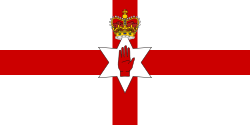 Kenny Shiels (2013–2014)
Kenny Shiels (2013–2014) -
 Jim Duffy (2014–)
Jim Duffy (2014–)
Scottish Cup Record
Morton first entered the Scottish Cup in season 1877–1878, and won it once in 1922. Over the course of Morton's time in the competition it has changed format seven times, to its current format of 8 rounds and 2 preliminary rounds.
- Between 2012–13 and 2014–15 there were 8 rounds plus a preliminary round.
- Between 2007–08 and 2011–12 there were 8 rounds.
- Between 1970–71 and 2006–07 there were 7 rounds.
- Between 1957–58 and 1969–70 there were 5 rounds plus a preliminary round.
- Between 1954–55 and 1956–57 there were 9 rounds.
- Between 1912–13 and 1953–54 there were 6 rounds.
- Between 1895–96 and 1911–12 there were 5 rounds.
So far Morton have finished the competition in the following rounds, this many times.
- Finals – 2 (last 1948)
- Semi-finals – 5 (last 1981)
- Quarter-finals – 14 (last 2016)
European record
| Season | Competition | Round | Opponent | Home | Away | Aggregate |
|---|---|---|---|---|---|---|
| 1968–69 | Inter-Cities Fairs Cup | First round | 3–4 | 0–5 | 3–9 |
References
- ↑ "Club Info". Greenock Morton F.C.
- 1 2 3 4 "Club History". Greenock Morton F.C. Retrieved 11 November 2009.
- 1 2 "Greenock Morton Football Club". Scottish Professional Football League. Retrieved 11 November 2013.
- ↑ "1946–1970 A Historic Treble". Rangers F.C. Retrieved 3 September 2008.
- ↑ "GREENOCK MORTON FOOTBALL CLUB – THE PRIDE OF THE CLYDE". 188-football.co.uk. 7 May 2009. Retrieved 1 April 2010.
- ↑ Halliday, Stephen (15 April 2006). "Goal feats of understudy 'Sailor' James Burke saw him chart course into Ibrox folklore". The Scotsman. Retrieved 1 April 2010.
- ↑ "RALPH BRAND". Rangers F.C. Retrieved 3 September 2008.
- ↑ Black, Jim (27 February 2000). "Morton add to Clydebank woes". Sunday Herald. Retrieved 3 September 2008.
- ↑ "England Player Profile". englandfc.com. Retrieved 15 September 2008.
- ↑ "Battles of Britain: the full list". The Guardian. 31 October 2002. Retrieved 3 September 2008.
- ↑ "History of Hamilton Academical FC". acciesyouth.sports.officelive.com. 10 July 2005. Retrieved 3 September 2008.
- ↑ "Morton appoint McCormack". BBC Sport. 20 November 2002. Retrieved 3 September 2008.
- ↑ Parks, Gordon (17 December 2010). "I remember Morton squad bet on teammate to be first scorer in match, admits John McCormack". Daily Record. Retrieved 8 July 2012.
- ↑ "McInally named as Morton manager". BBC Sport. 22 October 2004. Retrieved 3 September 2008.
- ↑ Broadley, Ian (7 May 2006). "STUFF YOUR PLAY-OFFS". Sunday Mirror. Retrieved 3 September 2008.
- ↑ "Morton 9–1 Forfar Athletic". BBC Sport. 7 April 2007. Retrieved 3 September 2008.
- ↑ "Raith Rovers 2–0 Morton". BBC Sport. 14 April 2007. Retrieved 5 September 2008.
- ↑ "Ayr United 3–2 Stirling Albion". BBC Sport. 14 April 2007. Retrieved 5 September 2008.
- ↑ "McInally resigns as Morton boss". BBC Sport. 12 February 2008. Retrieved 3 September 2008.
- ↑ "Irons quits Gretna for Morton job". BBC Sport. 19 February 2008. Retrieved 3 September 2008.
- ↑ Graham, Roger (31 October 2009). "Grady and McManus get Ton job". Greenock Telegraph. Retrieved 31 October 2009.
- ↑ "Manager James Grady parts company with Morton". BBC Sport. 9 May 2010. Retrieved 9 May 2010.
- ↑ "Allan Moore eyes top flight with Morton". BBC Sport. 29 May 2010. Retrieved 22 August 2011.
- ↑ Mitchell, Jonathan (6 May 2014). "Kenny Shiels resigns as Morton manager". Greenock Telegraph. Retrieved 6 May 2014.
- ↑ "Morton are League 1 Champions". Scottish Professional Football League. 2 May 2015. Retrieved 3 May 2015.
- ↑ "Greenock Morton – Historical Football Kits". historicalkits.co.uk. Retrieved 3 September 2008.
- ↑ "MORTON Buy Stand From St Mirren". inverclydenow.com. 13 December 2008. Archived from the original on 19 December 2008. Retrieved 12 May 2009.
- ↑ "Supporters Clubs". Greenock Morton F.C. Retrieved 13 September 2008.
- ↑ "Home Page". gourock-morton-supporters.org.uk. Retrieved 16 September 2008.
- ↑ http://www.scotsman.com/sport/football/competitions/championship/st-mirren-3-1-morton-saints-win-renfrewshire-derby-1-4102483
- ↑ http://www.dailyrecord.co.uk/sport/football/football-news/morton-fans-turn-record-sport-6878202#kW6my3oy2E5zsT1C.97
- ↑ "War Fund Shield". Scottish Football Historical Archive. Retrieved 8 June 2015.
- ↑ "Rangers win SFL Reserve League Championship". Scottish Professional Football League. 20 February 2013. Retrieved 29 August 2015.
- ↑ Mitchell, Jonathan (29 March 2016). "Morton Under-20s crowned champions". Greenock Telegraph. Retrieved 30 March 2016.
- ↑ Mitchell, Jonathan. "Morton Under-17s save best for last". Greenock Telegraph.
- ↑ "Morton is Lilley's pad". The Scotsman. 30 July 2005. Retrieved 18 August 2015.
- ↑ "Greenock Morton 1946–47–2007–08". newcastlefans.com.
- ↑ Mitchell, Jonathan (6 March 2014). "Bachirou's joy at international debut". Greenock Telegraph. Retrieved 6 March 2014.
- ↑ "International friendly: Slovakia U21 4-0 Scotland U21". BBC Sport. BBC. 9 November 2016. Retrieved 9 November 2016.
- ↑ "2005". Scottish Football Museum. Retrieved 17 August 2011.
- ↑ "Nine hoisted into Scotland's proud Hall of Fame". The Scotsman. 12 November 2007. Retrieved 11 November 2013.
External links
- Official Website
- Greenock Morton Supporters Trust
- TonTastic Media Archive
- Morton BBC My Club page
- Complete History and Stats at FitbaStats